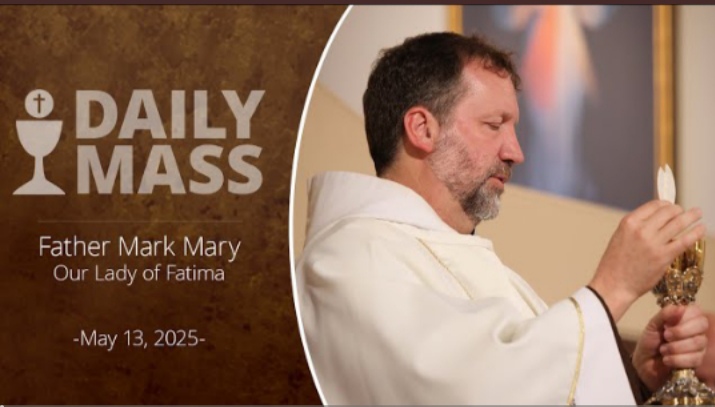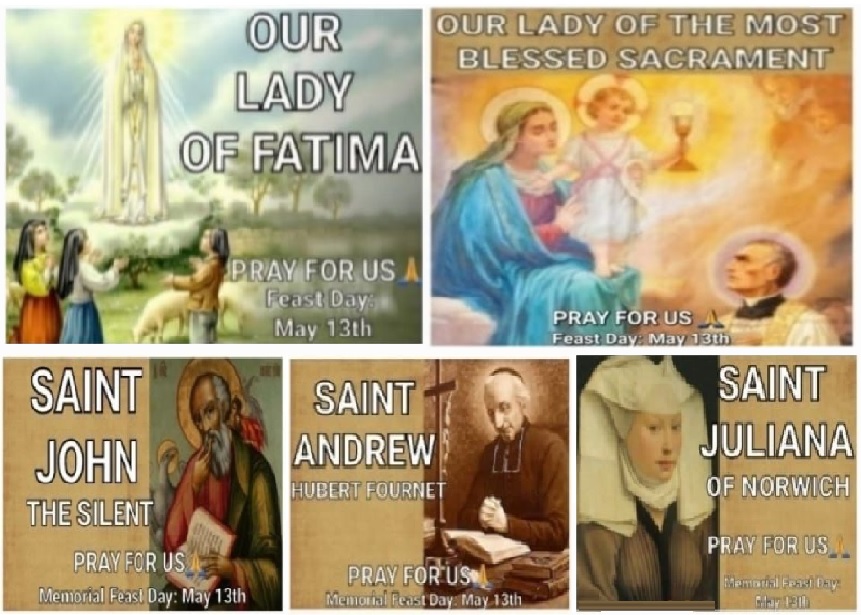
FEAST OF OUR LADY OF FATIMA AND FEAST OF OUR LADY OF THE MOST BLESSED SACRAMENT: MEMORIAL OF SAINT JOHN THE SILENT, BISHOP; SAINT ANDREW HUBERT FOURNET, PRIEST AND SAINT JULIANA OF NORWICH, RELIGIOUS
TUESDAY OF THE FOURTH WEEK OF EASTER SAINT(S) OF THE DAY: FEAST DAY ~ MAY 13, 2025 FEAST OF OUR LADY OF FATIMA AND FEAST OF...





